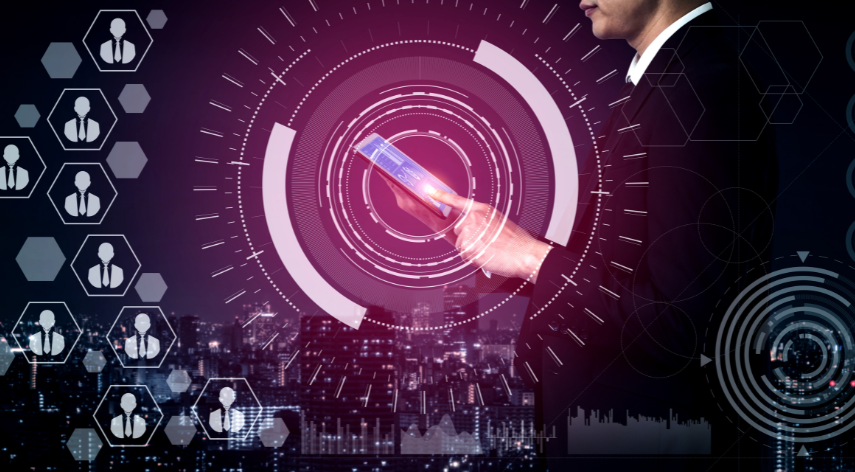As we witness the rapid ascent of Artificial Intelligence (AI) into every aspect of our lives, from personal assistants to autonomous vehicles, it’s crucial to delve into the trends and prospects shaping this transformative landscape. The rise of AI marks a paradigm shift in showing how we perceive and interact with technology, offering unprecedented opportunities and posing intriguing challenges. In this article, we intend to embark on a journey to explore the latest trends driving AI innovation and envision the promising prospects. Keep reading this article as we navigate through the dynamic world of AI, unraveling its potential to redefine industries, enhance human capabilities, and shape the future of our world.
AI’s rapid rise has transformed sectors globally. From healthcare to finance, it’s reshaping industries with automation, predictive analytics, and personalized services. AI-driven innovations like chatbots, recommendation systems, and autonomous vehicles are revolutionizing businesses’ operations, emphasizing efficiency, accuracy, and customer satisfaction in today’s dynamic landscape.
A career in artificial intelligence (AI) offers exciting opportunities for innovation and impact across industries. As AI continues to revolutionize technology, professionals skilled in machine learning, AI algorithms, and data analysis are in high demand. Pursuing a Masters in AI keeps individuals at the forefront of this competitive job market by providing specialized knowledge and hands-on experience with cutting-edge tools and techniques. With a Master’s degree, individuals gain a deeper understanding of AI concepts and methodologies, positioning them as top candidates for roles in research, development, and leadership positions in companies driving the future of AI innovation.
Current Trends in Artificial Intelligence
In recent years, several notable trends have emerged in Artificial Intelligence (AI), reshaping industries and revolutionizing how businesses operate. Firstly, advancements in Machine Learning and Deep Learning have propelled AI to new heights, enabling systems to learn from vast amounts of data and make complex decisions autonomously. Natural Language Processing (NLP) breakthroughs have facilitated the development of AI models capable of understanding and generating human language, leading to innovations like virtual assistants and language translation tools.
Additionally, Robotic Process Automation (RPA) adoption has surged, with businesses automating repetitive tasks and streamlining workflows using AI-powered software robots. Furthermore, AI-driven personalization has become a cornerstone of marketing and e-commerce strategies, as companies leverage data analytics and machine learning algorithms to deliver personalized experiences and recommendations to consumers, thereby enhancing engagement and driving sales.
Moreover, the integration of AI in healthcare has witnessed significant advancements, particularly in diagnostics and personalized treatment. AI-powered systems analyze medical data, images, and genetic information to aid in disease detection, treatment planning, and drug development, ultimately improving patient outcomes and revolutionizing the healthcare industry.
Overall, these trends underscore the transformative potential of AI across various sectors, promising continued innovation and growth in the years to come.
Future Prospects of Artificial Intelligence
The future of Artificial Intelligence (AI) holds immense promise across diverse domains. Firstly, AI’s expansion into new industries and sectors foresees its pervasive presence in agriculture, education, and entertainment. However, ethical considerations and regulations are crucial to navigate as AI adoption increases, ensuring responsible development and usage. Advancements in AI-powered autonomous vehicles and transportation herald safer, more efficient mobility solutions. Moreover, AI’s evolution in augmenting human capabilities promises improved quality of life through healthcare advancements and personalized assistance. Yet, the potential societal impact of widespread AI adoption necessitates careful consideration to address challenges such as job displacement and privacy concerns.
Challenges and Opportunities
As Artificial Intelligence (AI) continues to proliferate, several challenges and opportunities emerge, shaping its trajectory and impact on society. Firstly, addressing biases and ensuring fairness in AI algorithms is paramount to mitigate discriminatory outcomes. This involves thorough data preprocessing, algorithm transparency, and ongoing monitoring to uphold ethical standards and inclusivity.
Balancing automation with job displacement concerns poses a significant challenge. While AI enhances productivity and efficiency, there’s a risk of certain job roles becoming obsolete. To address this, reskilling and upskilling programs enable workers to adapt to evolving job requirements and transition to new roles.
However, amidst these challenges lie ample opportunities for innovation and entrepreneurship in the AI space. Startups and established companies are exploring AI-driven solutions to address diverse needs, ranging from healthcare and finance to education and sustainability. This fosters a vibrant ecosystem for creativity and growth, driving economic development and societal progress.
Collaborative efforts in research and development are essential to overcome technical challenges and maximize AI’s potential. Cross-disciplinary collaboration among scientists, engineers, policymakers, and ethicists fosters diverse perspectives and expertise, leading to AI algorithms, hardware, and application breakthroughs. Open-source initiatives and partnerships between academia and industry further accelerate innovation and facilitate knowledge sharing.
In conclusion, while challenges such as bias mitigation and job displacement require proactive measures, the opportunities for innovation and collaboration in AI are vast. By addressing these challenges collectively and harnessing the potential of AI responsibly, we can unlock transformative solutions to address complex societal problems and shape a brighter future.
Conclusion
We have explored the key trends and prospects shaping the future of Artificial Intelligence (AI). Right from advancements in machine learning to the integration of AI across industries, the transformative potential of AI is undeniable. As we navigate this dynamic landscape, we must reflect on AI’s role in shaping a more efficient, inclusive, and sustainable future. However, realizing this potential often requires a concerted effort towards responsible deployment, ongoing exploration, and ethical research practices. Let’s continue to collaborate, innovate, and harness AI’s power for society’s betterment while remaining vigilant of its ethical implications.
A Master’s in AI offers specialized knowledge and hands-on experience with cutting-edge technologies, positioning individuals at the forefront of technological advancements. Students gain insights into emerging AI trends, algorithms, and applications through rigorous coursework and research. Additionally, access to industry collaborations and faculty expertise ensures exposure to the latest developments. Moreover, practical projects and internships provide valuable real-world experience, enhancing proficiency in implementing innovative AI solutions. Ultimately, a Master’s in AI equips individuals with the skills and insights needed to stay ahead in the fast-paced world of technological innovation.
